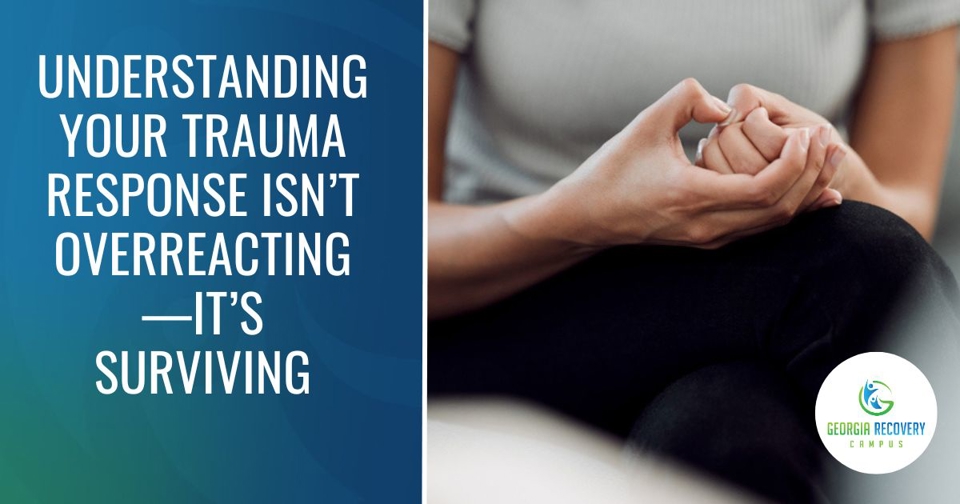Recognizing the Nature of Triggers and Life Avoidance
Life can throw unexpected challenges at us, sometimes stirring up deep emotional and physical reactions. For many, these reactions come from triggers—things that pull us back into difficult feelings or memories. When those triggers lead to avoiding life’s demands altogether, it can create a pattern that’s hard to break. Understanding how triggers work and why avoidance happens can open the door to better coping and healthier choices.
Understanding Emotional and Physical Triggers
Triggers often come from past experiences that left a mark. A certain sound, smell, or situation might bring back feelings tied to trauma, even if the danger isn’t present now. Physically, triggers can cause your body to react—maybe your heart races or breathing feels tight in crowded or stressful situations. These responses can be overwhelming, making everyday life feel more difficult. Recognizing these signs helps you see what’s happening and start managing reactions instead of feeling controlled by them.
Defining Avoiding Life: What It Means to Withdraw
Avoiding life isn’t just about skipping events or responsibilities—it’s a way to escape uncomfortable feelings or memories. While it might seem like a quick fix, withdrawing can lead to isolation and make things worse over time. Pulling back from friends, family, or activities means missing out on important connections and chances to grow. Avoidance becomes a habit that builds walls rather than bridges, making it tougher to re-engage with life later.
Psychological and Behavioral Signs of Trigger Avoidance
When avoidance takes hold, you might notice being constantly on edge, always watching for something bad to happen—even when it doesn’t. This hyper-vigilance can make it hard to relax or focus. Sometimes, emotions feel numb or distant, making it difficult to enjoy things that used to bring joy. Anxiety might also increase, causing irritability and persistent worry. Spotting these signs early can help you find ways to address avoidance before it takes deeper root.
Impact on Daily Living and Mental Health
Short-Term vs. Long-Term Effects of Avoidance
Avoidance might bring quick relief—it’s natural to want to dodge discomfort. But relying on it long-term can make anxiety worse, leaving you less prepared to face challenges when they come. The more you avoid, the harder it becomes to cope, creating a cycle that feeds itself. Shifting from avoidance to healthier habits takes effort but can lead to stronger mental health and a fuller life.
How Avoiding Life Affects Relationships and Social Interactions
Withdrawing doesn’t just affect you—it changes how you connect with others. Avoidance can cause misunderstandings, with loved ones feeling shut out or unimportant. This breakdown in communication can deepen loneliness and make rebuilding relationships feel overwhelming. Recognizing the toll avoidance takes on your social life is a step toward reconnecting and healing those bonds.
Mental Health Implications: Depression and Anxiety
When avoidance continues unchecked, it often fuels feelings of depression and anxiety. Life can start to feel smaller and heavier, with less interest in once-enjoyed activities. Anxiety can spike in situations where you feel trapped or threatened, reinforcing the desire to avoid. Understanding this cycle helps in finding strategies that break it, making space for recovery and hope.
Strategies to Address Avoidance Behavior
Cognitive Behavioral Techniques for Managing Triggers
Therapies like Cognitive Behavioral Therapy (CBT) offer practical tools to face triggers without being overwhelmed. Techniques such as exposure therapy help you gradually confront fears in a safe way. Changing negative thought patterns through cognitive restructuring encourages healthier reactions. Combining these with stress management methods, like deep breathing or muscle relaxation, builds resilience and control over avoidance.
Encouraging Mindfulness and Present Moment Awareness
Mindfulness helps you stay grounded in the present, noticing triggers without immediately reacting. Practices like meditation and focused breathing teach calmness and acceptance, reducing the urge to escape difficult feelings. Making mindfulness part of your daily routine can help you engage with life more fully and respond to challenges with greater ease.
Setting Healthy Boundaries Versus Overly Restrictive Avoidance
It’s important to know the difference between protecting yourself and shutting down. Healthy boundaries keep you safe and comfortable while allowing growth and connection. Avoidance builds walls that block out opportunities and experiences. Finding balance means setting limits that support your well-being without cutting you off from life’s richness.
Tools and Resources for Overcoming Avoidance
Therapeutic Interventions: Professional Support Options
Professional support can guide you through avoidance and triggers with care and structure. Different therapies address various needs and offer strategies to reclaim your life. For those near Reynolds, Georgia, Georgia Recovery Campus provides personalized care focused on mental health and addiction recovery, helping you build stronger coping skills and regain control.
Support Groups and Community Resources
Connecting with others who understand your struggles can be powerful. Support groups offer a safe space to share and learn from shared experiences. Community programs can introduce you to new activities and social opportunities, helping break the cycle of isolation and build supportive relationships.
Self-Help Techniques to Gradually Reengage with Life
Small steps matter. Setting manageable goals, keeping a journal, or trying new hobbies can ease the return to everyday life. These self-help strategies boost confidence and make life feel more inviting, replacing avoidance with curiosity and engagement.
Navigating Personal Progress and Recovery
Measuring Progress: Recognizing Small Wins
Recovery isn’t about giant leaps—it’s about steady progress. Celebrating small achievements, like attending a social event or expressing your feelings, builds motivation and confidence. Each win is proof that change is possible and you’re moving forward.
Developing a Personal Coping Strategy Toolkit
Having a set of go-to tools helps when triggers arise. Breathing exercises, calming visualizations, or positive affirmations can keep you grounded. Journaling your thoughts and progress offers insight and encouragement along the way.
Maintaining Long-Term Resilience Against Avoidance
Resilience comes from ongoing care and awareness. Staying connected with support, practicing self-reflection, and adapting strategies as life changes keep you strong. For those seeking support and help with addiction, reaching out to Georgia Recovery Campus means access to ongoing guidance that supports lasting recovery and a fuller life. If avoidance and triggers are holding you back, help is available. Our team offers compassionate mental health care tailored to your needs.
Call (478) 216-1110 today to learn how we can support your journey toward healing and renewed connection.



.2508071630449.jpg)



